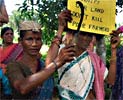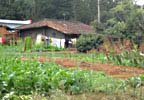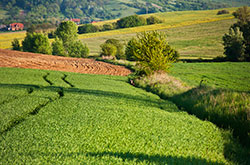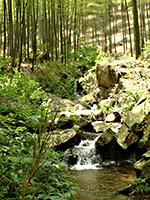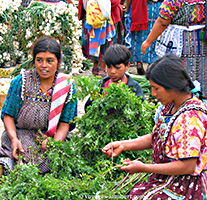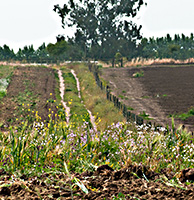An estate in Hungary – 1912 (2)
Serf or free servant?
“But grandpa, you weren't happy to become free?” Gyula asks, astonished. He has just learned at school about the great Hungarian revolution of 1848, which abolished serfdom. “My dear boy,” grandpa answers, “the compulsory services, the tithes, the slave labour on the estates which were owned by counts, that all has disappeared gradually. That is true. But, we are really not better off now. Don't believe that.”
Gyula likes nothing better than listening to grandpa telling stories about the past. He is sitting in the small backyard of his servant house at the Rácegres estate. There are quite a lot of beehives, because grandpa is a passionate bee-keeper. Grandpa puffs his pipe, some bees are flying around, and then he goes on: “Well, what have servants these days, when they marry? All right, they are so-called 'free', but how many clothes do they have? Not many. When I married grandma, I had a box full of clothes, two pairs of boots, a fur cape, or whatever. Nowadays, a 'free' servant can be happy, when he has two sets of work clothes.”
Then, grandpa starts talking about the construction of the railroad, one anecdote after another. Gyula listens with open mouth. It is just as if he was there then. Suddenly, grandpa's face becomes gloomy: “Yes, sonny, it all started with the train. Before, we only grew the grain we needed ourselves. Because it was in fact impossible to bring it to Budapest by ox-cart. But, when the train was there, the grain could be transported by wagon-loads. All of a sudden, the estates became lucrative. The counts rented their estates, and the tenants were counting every penny. We had to work harder and harder, so that the tenant could earn as much as possible. Suddenly cheap grain came from abroad, and the price of the grain dropped. Every few years we got less money.”
“You can't imagine it nowadays, Gyula, but in the past all servants, who were in fact still serfs, had a small piece of land for a kitchen garden, and to grow potatoes. We all had quite a lot of chickens, a few pigs, and a cow which could graze for free, because there was enough pasture. Your grandmother sold every year I don't know how many piglets, and eggs on the village market.” Grandpa has to laugh, when he remembers a funny story about piglets grandma drove to the village, to finish with: “Well, fortunately, I have my bees, they provide me with some pocket money.”
_______________________
Source
The book People of the Puszta (1936) from the Hungarian author Gyula Illyés is a blend of an autobiography and an anthropological study, with numerous small stories about what Illyés saw and experienced himself in his youth.
Go to:
= part 1: As free as a bird - an estate in Hungary – 1910 (1), story 52.
= the next page: Forest Fire - a hamlet in New South Wales, Australia – 1914 (1), story 57.
= the Table of contents, story 56.
